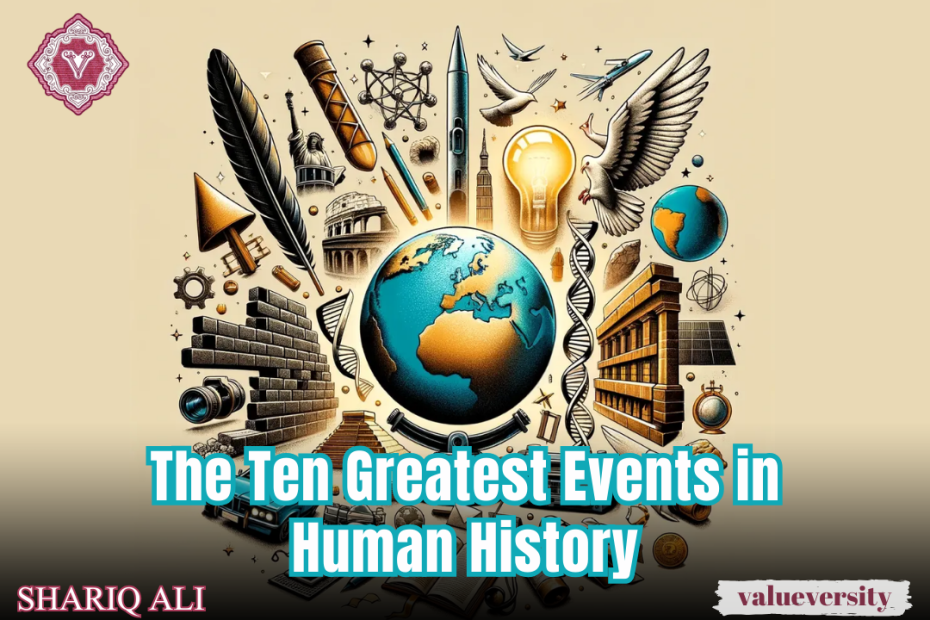The ten greatest events in human history
It is difficult to define the “greatest” events in human history as different events have had varying impacts on human society, culture, and development. However, based on their significance, historical impact, and ongoing influence, the following ten events can be considered among the greatest in human history:
The Agricultural Revolution (10,000 BCE):
This period marked the shift from a nomadic, hunter-gatherer lifestyle to a settled, agricultural society, which led to the development of civilization and the growth of human population.
The Development of Writing (3500 BCE):
Writing enabled the recording of human knowledge, history, and culture, which facilitated the exchange of information and the growth of human civilization.
The Rise and Spread of Ancient Empires (3000 BCE – 476 CE):
The rise of empires such as the Roman, Persian, and Chinese empires marked a period of cultural and economic expansion, and the development of new systems of governance, religion, and language.
The Life and Teachings of Buddha (563 BCE – 483 BCE):
Buddha’s teachings have had a profound impact on Asian philosophy, religion, and culture, and continue to influence people around the world.
The Life and Teachings of Jesus Christ (4 BCE – 30 CE):
Jesus Christ’s teachings have shaped the course of Western civilization, including its religious, cultural, and social development.
The Islamic Golden Age (8th-13th centuries):
During this period, the Islamic world made significant contributions to science, mathematics, philosophy, and culture, which influenced the development of Europe and the world.
The Age of Exploration and Discovery (15th-18th centuries):
The exploration of the Americas, Africa, and Asia opened new trade routes, introduced new cultures and ideas, and marked a turning point in world history.
The Industrial Revolution (18th-19th centuries):
The Industrial Revolution marked the transition from manual to machine-based manufacturing and transformed society and the economy, leading to unprecedented growth and prosperity.
World War II (1939-1945):
The deadliest conflict in human history, World War II led to the deaths of tens of millions of people, reshaped the world order, and gave rise to the nuclear age.
The Digital Revolution (20th-21st centuries):
The advent of digital technology has transformed society and the economy, enabling unprecedented access to information, communication, and commerce, and shaping the course of human history.
